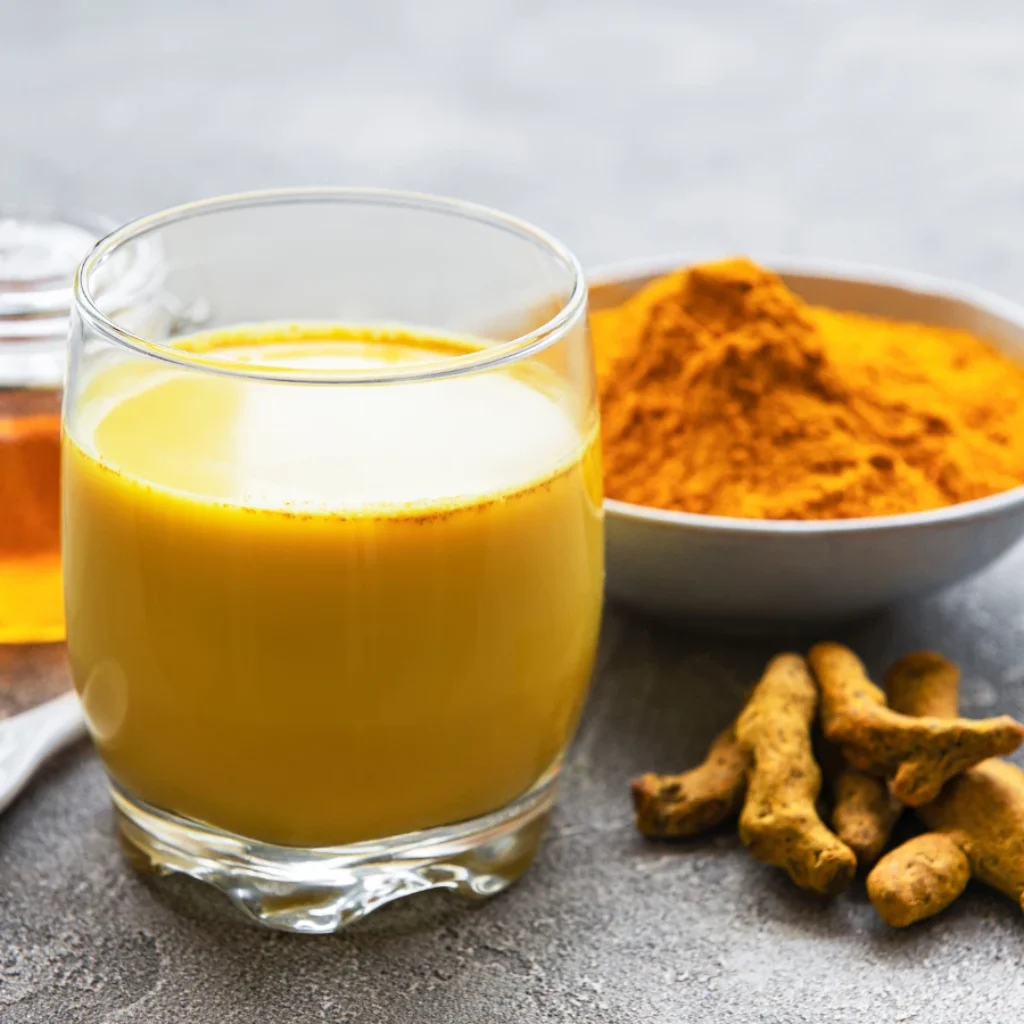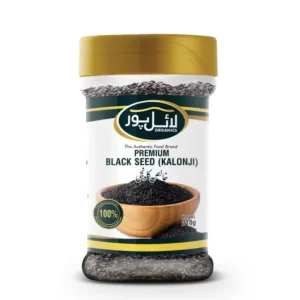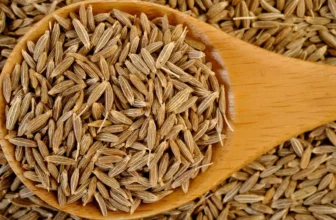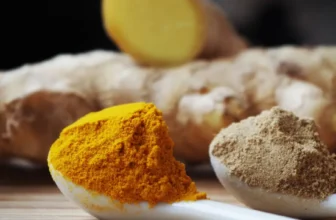The Golden Spice for a Golden Mind: How Turmeric Improves Brain Functions
How Turmeric Improves Brain Functions?
Turmeric, often called Curcuma longa or golden spice, has long been revered in traditional medicine and Ayurvedic practices. This herbal supplement is celebrated for Turmeric’s health benefits, particularly its potential to enhance brain health and cognitive function. But can turmeric powder truly improve memory and boost cognitive abilities? This article delves into the science behind turmeric for brain health and its potential role in promoting neuroprotection and mental acuity.
Table of Contents
The Science Behind Golden Spice
At the heart of turmeric’s therapeutic properties is curcumin, a bioactive compound known for its antioxidant and anti-inflammatory effects. Curcumin is believed to influence brain function by supporting neurogenesis and enhancing synaptic function. These actions are crucial for maintaining cognitive health and preventing cognitive decline.
Neuroprotective Effects
- One of golden spice’s most compelling benefits is its neuroprotective effects. Curcumin reduces neuroinflammation, a key factor in neurodegenerative diseases such as Alzheimer’s disease and dementia. By mitigating brain inflammation, curcumin helps preserve neuronal health and supports the formation of new neural connections, a process known as neurogenesis.

How Turmeric Improves Brain Functions, Enhancing Memory and Cognitive Function
Turmeric’s ability to improve memory and cognitive function is linked to its impact on neurotransmitters and neural pathways. Studies suggest that curcumin can increase levels of brain-derived neurotrophic factor (BDNF), a protein that promotes the survival of existing neurons and encourages the growth of new ones. Higher levels of BDNF are associated with better cognitive performance and memory function.
Moreover, turmeric’s antioxidant properties help protect brain cells from oxidative stress, which is known to impair cognitive processes. This protection enhances mental clarity and cognitive sharpness, contributing to overall brain efficiency and mental performance.
Preventing Cognitive Decline
Regular turmeric consumption may prevent cognitive decline associated with aging. Curcumin’s ability to inhibit amyloid plaques, characteristic of Alzheimer’s disease, highlights its potential for dementia prevention. By supporting brain plasticity and maintaining neural health, turmeric sustains cognitive capacity over time.

Incorporating Turmeric into Your Diet
To harness the brain-boosting benefits of turmeric, it can be incorporated into your diet in various forms. Turmeric root and powdered turmeric are common ingredients in Indian cuisine and can be added to curries, soups, and smoothies. Turmeric supplements are also available and can be an effective way to ensure adequate intake of curcumin.
Maximizing Absorption
One challenge with turmeric is curcumin bioavailability. It is difficult for curcumin to enter the bloodstream on its own. Black pepper, which contains piperine, significantly enhances curcumin absorption when combined with turmeric. Additionally, consuming turmeric with healthy fats can further increase its bioavailability.
Recommended Dosage
While there is no standard dosage for turmeric, studies typically use doses ranging from 500 to 2,000 milligrams of curcumin per day. It’s essential to start with a lower dose and gradually increase it to assess tolerance and effectiveness. As with any supplement, it’s advisable to consult with a healthcare provider before starting a new regimen, especially for individuals with underlying health conditions or those taking other medications.
Potential Side Effects and Precautions
Although turmeric is generally considered safe, high doses or prolonged use can lead to side effects such as digestive issues, including nausea and diarrhea. Individuals with gallbladder problems or those taking blood-thinning medications should exercise caution and seek medical advice before using turmeric supplements.

Research and Future Directions
The growing interest in turmeric’s cognitive benefits has spurred extensive research. Ongoing studies aim to further elucidate the mechanisms through which curcumin exerts neuroprotective effects. They also aim to determine the most effective ways to utilize this natural nootropic. Future research may also explore the potential synergistic effects of turmeric when combined with other herbal remedies and dietary supplements.
Clinical Trials and Evidence
Numerous clinical trials have investigated the impact of turmeric on cognitive function and memory improvement. For instance, a study published in the American Journal of Geriatric Psychiatry found that participants who took curcumin supplements experienced significant improvements in memory and attention compared to those who took a placebo. Another study in the Journal of Psychopharmacology reported enhanced cognitive performance and reduced symptoms of anxiety and depression in individuals taking curcumin.

Conclusion
Turmeric, with its potent bioactive compounds, offers a promising natural approach to supporting brain health and enhancing cognitive function. Its neuroprotective properties, ability to reduce inflammation, and role in promoting neurogenesis make it a valuable addition to a brain-healthy lifestyle.
While more research is needed to fully understand the extent of turmeric’s benefits, incorporating this golden spice into your diet or supplement regimen may contribute to improved memory, mental clarity, and overall cognitive resilience.
Incorporate turmeric wisely, monitor its effects, and consult with healthcare professionals to maximize its brain-boosting potential and enjoy Turmeric powder’s myriad health benefits.
Top Selling Products at Lyallpur Organics
-
 Premium Black Seed – Kalonji (Khalis Kalwanji) – 100% Natural & Pure | Nutrient-Rich & Flavorful | Best Price in Pakistan₨ 277.00 – ₨ 640.00Price range: ₨ 277.00 through ₨ 640.00
Premium Black Seed – Kalonji (Khalis Kalwanji) – 100% Natural & Pure | Nutrient-Rich & Flavorful | Best Price in Pakistan₨ 277.00 – ₨ 640.00Price range: ₨ 277.00 through ₨ 640.00 -
 Premium Fennel Seeds (Saunf) – 100% Natural Organic & Pure | Rich in Flavor & Aroma | Best Price in Pakistan₨ 233.00 – ₨ 490.00Price range: ₨ 233.00 through ₨ 490.00
Premium Fennel Seeds (Saunf) – 100% Natural Organic & Pure | Rich in Flavor & Aroma | Best Price in Pakistan₨ 233.00 – ₨ 490.00Price range: ₨ 233.00 through ₨ 490.00 -
 Premium Crushed Red Chili (Crushed Lal Mirch, Darra Mirch) – 100% Natural & Pure | Super Spicy Flavour & Vibrant Color | Best Price in Pakistan₨ 219.00 – ₨ 780.00Price range: ₨ 219.00 through ₨ 780.00★★★★★
Premium Crushed Red Chili (Crushed Lal Mirch, Darra Mirch) – 100% Natural & Pure | Super Spicy Flavour & Vibrant Color | Best Price in Pakistan₨ 219.00 – ₨ 780.00Price range: ₨ 219.00 through ₨ 780.00★★★★★ -
 Premium Kishmish (Raisin) Sundarkhani – 100% Natural Organic & Pure | Rich in Nutrients & Sweet Flavour | Best Price in Pakistan₨ 281.00 – ₨ 410.00Price range: ₨ 281.00 through ₨ 410.00
Premium Kishmish (Raisin) Sundarkhani – 100% Natural Organic & Pure | Rich in Nutrients & Sweet Flavour | Best Price in Pakistan₨ 281.00 – ₨ 410.00Price range: ₨ 281.00 through ₨ 410.00 -
 Premium Red Chili Powder (Lal Mirch Powder) – 100% Natural & Pure | Hot Spicy Flavour & Vibrant Color | Best Price in Pakistan₨ 200.00 – ₨ 1,015.00Price range: ₨ 200.00 through ₨ 1,015.00
Premium Red Chili Powder (Lal Mirch Powder) – 100% Natural & Pure | Hot Spicy Flavour & Vibrant Color | Best Price in Pakistan₨ 200.00 – ₨ 1,015.00Price range: ₨ 200.00 through ₨ 1,015.00 -
 Premium Black Pepper Powder (Kali Mirch Powder) – 100% Natural & Pure | Bold Flavour & Rich Aroma | Best Price in Pakistan₨ 664.00
Premium Black Pepper Powder (Kali Mirch Powder) – 100% Natural & Pure | Bold Flavour & Rich Aroma | Best Price in Pakistan₨ 664.00 -
 Premium Kishmish (Raisin) Kandhari – 100% Natural & Pure | Rich in Nutrients & Sweet Flavour | Best Price in Pakistan₨ 200.00 – ₨ 260.00Price range: ₨ 200.00 through ₨ 260.00
Premium Kishmish (Raisin) Kandhari – 100% Natural & Pure | Rich in Nutrients & Sweet Flavour | Best Price in Pakistan₨ 200.00 – ₨ 260.00Price range: ₨ 200.00 through ₨ 260.00 -
 Premium Flax Seed (Alsi) – 100% Natural Organic & Pure | Rich in Omega-3 & Fiber | Best Price in Pakistan₨ 233.00 – ₨ 464.00Price range: ₨ 233.00 through ₨ 464.00
Premium Flax Seed (Alsi) – 100% Natural Organic & Pure | Rich in Omega-3 & Fiber | Best Price in Pakistan₨ 233.00 – ₨ 464.00Price range: ₨ 233.00 through ₨ 464.00








